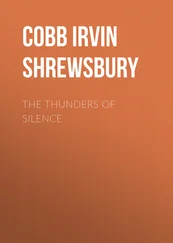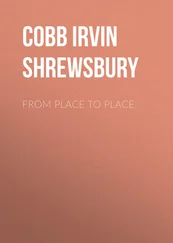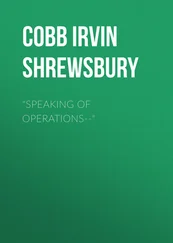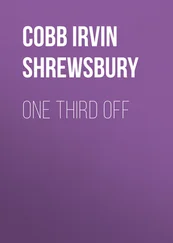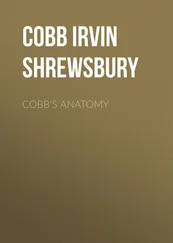Irvin Cobb - Those Times and These
Здесь есть возможность читать онлайн «Irvin Cobb - Those Times and These» — ознакомительный отрывок электронной книги совершенно бесплатно, а после прочтения отрывка купить полную версию. В некоторых случаях можно слушать аудио, скачать через торрент в формате fb2 и присутствует краткое содержание. Жанр: foreign_prose, на английском языке. Описание произведения, (предисловие) а так же отзывы посетителей доступны на портале библиотеки ЛибКат.
- Название:Those Times and These
- Автор:
- Жанр:
- Год:неизвестен
- ISBN:нет данных
- Рейтинг книги:4 / 5. Голосов: 1
-
Избранное:Добавить в избранное
- Отзывы:
-
Ваша оценка:
- 80
- 1
- 2
- 3
- 4
- 5
Those Times and These: краткое содержание, описание и аннотация
Предлагаем к чтению аннотацию, описание, краткое содержание или предисловие (зависит от того, что написал сам автор книги «Those Times and These»). Если вы не нашли необходимую информацию о книге — напишите в комментариях, мы постараемся отыскать её.
Those Times and These — читать онлайн ознакомительный отрывок
Ниже представлен текст книги, разбитый по страницам. Система сохранения места последней прочитанной страницы, позволяет с удобством читать онлайн бесплатно книгу «Those Times and These», без необходимости каждый раз заново искать на чём Вы остановились. Поставьте закладку, и сможете в любой момент перейти на страницу, на которой закончили чтение.
Интервал:
Закладка:
He stood up and shook himself.
“In fact, son,” concluded Sergeant Bagby, “you mout safely say that, takin’ one thing with another, this country is turnin’ out to be quite a success.”
CHAPTER II. AND THERE WAS LIGHT
SO many things that at first seem amazingly complex turn out amazingly simple. The purely elemental has a trick of ambushing itself behind a screen of mystery; but when by deduction and elimination – in short, by the simple processes of subtraction and division – we have stripped away the mask, the fact stands so plainly revealed we marvel that we did not behold it from the beginning. Elemental, you will remember, was a favourite word with Mr. Sherlock Holmes, and one much employed by him in the elucidation of problems in criminology for the better enlightenment of his sincere but somewhat obvious-minded friend, the worthy Doctor Watson.
On the other hand, traits and tricks that appear to betray the characters, the inclinations and, most of all, the vocations of their owners may prove misleading clues, and very often do. You see a black man with a rolling gait, who spraddles his legs when he stands and sways his body on his hips when he walks; and, following the formula of the deductionist cult of amateur detectives, you say to yourself that here, beyond peradventure, is a deep-water sailor, used to decks that heave and scuppers that flood. Inquiry but serves to prove to you how wrong you are. The person in question is a veteran dining-car waiter.
Then along comes another – one with a hearty red face, who rears well back and steps out with martial precision. Evidently a retired officer of the regular army, you say to yourself. Not at all; merely the former bass drummer of a military brass band. The bass drummer, as will readily be recalled, leans away from his instrument instead of toward it.
For a typical example of this sort of thing, let us take the man I have in mind for the central figure of this tale. He was a square-built man, round-faced, with a rather small, deep-set grey eye, and a pair of big hands, clumsy-looking but deft. He wore his hair short and his upper lip long. Appraising him upon the occasion of a chance meeting in the street, you would say offhand that this, very probably, was a man who had been reasonably successful in some trade calling for initiative and expertness rather than for technic. He wouldn’t be a theatrical manager – his attire was too formal; or a stockbroker – his attire was not formal enough.
I imagine you in the act of telling yourself that he might be a clever life-insurance solicitor, or a purchasing agent for a trunk line, or a canny judge of real-estate values – a man whose taste in dress would run rather to golf stockings than to spats, rather to soft hats than to hard ones, and whose pet hobby would likely be trout flies and not first editions. In a part of your hypothesis you would have been absolutely correct. This man could do things with a casting rod and with a mid-iron too.
Seeing him now, as we do see him, wearing a loose tweed suit and sitting bareheaded behind a desk in the innermost room of a smart suite of offices on a fashionable side street, surrounded by shelves full of medical books and by wall cases containing medical appliances, you, knowing nothing of him except what your eye told you, would probably hazard a guess that this individual was a friend of the doctor, who, having dropped in for social purposes and having found the doctor out, had removed his hat and taken a seat in the doctor’s chair to await the doctor’s return.
Therein you would have been altogether in error. This man was not the doctor’s friend, but the doctor himself – a practitioner of high repute in his own particular line. He was known as a specialist in neurotic disorders; privately he called himself a specialist in human nature. He was of an orthodox school of medicine, but he had cast overboard most of the ethics of the school and he gave as little as possible of the medicine. Drugs he used sparingly, preferring to prescribe other things for most of his patients – such things, for instance, as fresh air, fresh, vegetables and fresh thoughts. His cures were numerous and his fees were large.
On the other side of a cross wall a woman sat waiting to see him. She was alone, being the first of his callers to arrive this day. A heavy, deep-cushioned town car, with a crest on its doors and a man in fine livery to drive it, had brought her to the doctor’s address five minutes earlier; car and driver were at the curb outside.
The woman was exquisitely groomed and exquisitely overdressed. She radiated luxury, wealth and the possession of an assured and enviable position. She radiated something else, too – unhappiness.
Here assuredly the lay mind might make no mistake in its summarising. There are too many like her for any one of us to err in our diagnosis when a typical example is presented. The city is especially prolific of such women. It breeds them. It coddles them and it pampers them, but in payment therefore it besets them with many devils. It gives them everything in reason and out of reason, and then it makes them long for something else – anything else, so long as it be unattainable. Possessed of the nagging demons of unrest and discontent and satiation, they feed on their nerves until their nerves in retaliation begin to feed on them. The result generally is smash. Sanitariums get them, and divorce courts and asylums – and frequently cemeteries.
The woman who waited in the reception room did not have to wait very long, yet she was hard put to it to control herself while she sat there. She bit her under lip until the red marks of her teeth showed in the flesh, and she gripped the arms of her chair so tightly and with such useless expenditure of nervous force that through her gloves the knuckles of her hands exposed themselves in sharp high ridges.
Presently a manservant entered and, bowing, indicated mutely that his master would see her now. She fairly ran past him through the communicating door which he held open for her passage. As she entered the inner room it was as though her coming into it set all its orderliness awry. Only the ruddy-faced specialist, intrenched behind the big table in the middle of the floor, seemed unchanged. She halted on the other side of the table and bent across it toward him, her finger tips drumming a little tattoo upon its smooth surface. He did not speak even the briefest of greetings; perhaps he was minded not to speak. He waited for her to begin.
“Doctor,” she burst out, “you must do something for me; you must give me medicine – drugs – narcotics – anything that will soothe me. I did not sleep at all last night and hardly any the night before that. All night I sat up in bed or walked the floor trying to keep from screaming out – trying to keep from going mad. I have been dressed for hours – I made my maid stay up with me – waiting for your office to open so that I might come to you. Here I am – see me! See the state I am in! Doctor, you must do something for me – and do it now, quickly, before I do something desperate!”
She panted out the last words. She put her clenched hands to her bosom. Her haggard eyes glared into his; their glare made the carefully applied cosmetics upon her face seem a ghastly mask.
“I have already prescribed for you, madam,” the doctor said. “I told you that what you mainly needed was rest – complete and absolute rest.”
“Rest? Rest! How can I rest? What chance is there for me to rest? I can’t rest! If I try to rest I begin to think – and then it is worse than ever. I must keep on the go. Something drives me on – something inside me, here – to go and go, and to keep on going until I drop. Oh, doctor, you don’t know what I suffer – what I have to endure. No one knows what I have to endure. No one understands. My husband doesn’t understand me – my children do not, nor my friends.
Читать дальшеИнтервал:
Закладка:
Похожие книги на «Those Times and These»
Представляем Вашему вниманию похожие книги на «Those Times and These» списком для выбора. Мы отобрали схожую по названию и смыслу литературу в надежде предоставить читателям больше вариантов отыскать новые, интересные, ещё непрочитанные произведения.
Обсуждение, отзывы о книге «Those Times and These» и просто собственные мнения читателей. Оставьте ваши комментарии, напишите, что Вы думаете о произведении, его смысле или главных героях. Укажите что конкретно понравилось, а что нет, и почему Вы так считаете.



